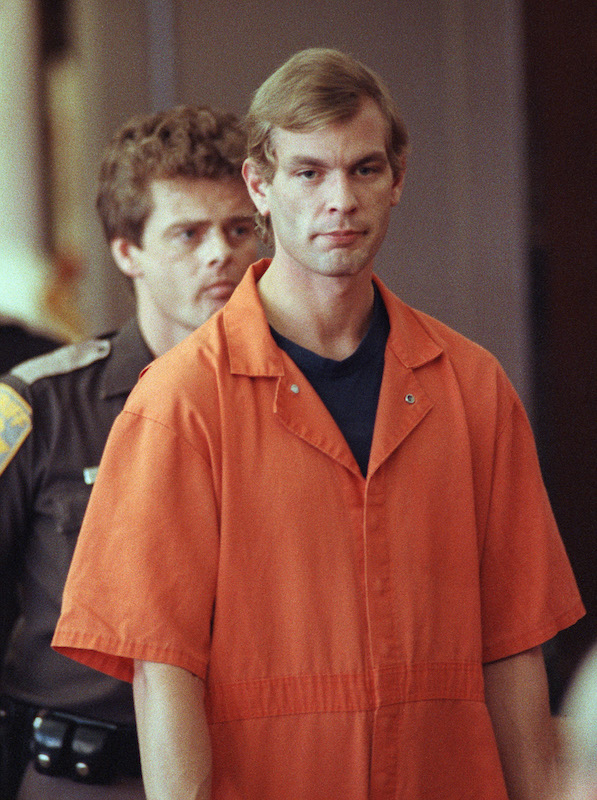
The reason wall-to-wall coverage of true crime stories seems to dominate TV news is arguably thanks to figures like the so-called “Milwaukee cannibal-murderer” Jeffrey Dahmer, who was arrested 25 years ago Friday, on July 22, 1991.
On that day, in his apartment, police found body parts and severed heads in his fridge, freezer, filing cabinet, even in a kettle, which “contained what are thought to be decomposing hands and a male genital organ,” per TIME’s report. He quickly confessed to 11 murders, and later, to the killing and dismembering 17 people between 1978 and 1991. He was sentenced to 15 consecutive life terms in jail, but died in 1994 after fellow inmate Charles Sarver beat him to death.
But, despite the heinous nature of his crimes, his arrest was largely an accident.
The week after it happened, TIME described how the 31-year-old former chocolate-factory worker with a history of alcohol abuse and pedophilia was finally apprehended:
Jeffrey Dahmer spent 10 months in prison for fondling a 13-year-old Laotian boy in 1988 and offering him $50 to pose nude for pictures. On his release, Dahmer was put on probation. Although he showed up at the probation office every month, his caseworker never visited Dahmer in his home, as is usually required. A state department of corrections spokesman said the requirement had been waived because the agent was overworked. Another serious lapse occurred in May, when police officers were called by two women who found a naked, bloodied Asian boy on the street. A man the women believe was Dahmer apparently convinced the police that the boy was his homosexual partner; the police declined to investigate. The 14-year-old boy, whose body has been identified amid the carnage in Dahmer’s home, was the brother of the Laotian youth Dahmer molested in 1988. Three police officers were suspended last week pending an investigation into why they did not rescue the youth.
Dahmer’s murderous rampage might have continued indefinitely had one of his victims not escaped last week. Running down a Milwaukee street with a pair of handcuffs dangling from one wrist, Tracy Edwards, 32, told police that Dahmer was trying to kill him. Dahmer was arrested without a struggle. He has since expressed remorse and briefed the authorities on his modus operandi: he usually lured men from shopping malls and bars by offering them money to pose for pictures; after drugging them, he would strangle his victims and dismember the bodies. Often he boiled their heads to remove the flesh, and in at least one case, say authorities, he had anal sex with a cadaver.
The haphazard nature of Dahmer’s arrest led many to accuse the Milwaukee police of negligence in the case and of failing to properly investigate crimes against minorities.
Get your history fix in one place: sign up for the weekly TIME History newsletter
Dahnmer’s case helped bring the pop-culture obsession with true crime to a new level, based on the record ratings for network TV interviews with Dahmer and talk of book deals for Dahmer’s father and the judge in the case. As TIME summed up the mass appeal of such mass murders, citing Diane Sawyer’s program revisiting the Charles Manson murder case: “Viewers are fascinated with these stories less for the gory crime details than for the peek they provide into the extremes of human psychology. We watch to be reassured these people are monsters, not at all like you and me. And to face the fear that in some basic ways they are exactly like you and me.”
More Must-Reads From TIME
- The 100 Most Influential People of 2024
- Coco Gauff Is Playing for Herself Now
- Scenes From Pro-Palestinian Encampments Across U.S. Universities
- 6 Compliments That Land Every Time
- If You're Dating Right Now , You're Brave: Column
- The AI That Could Heal a Divided Internet
- Fallout Is a Brilliant Model for the Future of Video Game Adaptations
- Want Weekly Recs on What to Watch, Read, and More? Sign Up for Worth Your Time
Write to Olivia B. Waxman at olivia.waxman@time.com